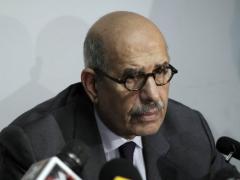A precarious ceasefire between Israel and Iran is already under strain, with both sides accusing each other of breaching the agreement brokered early Tuesday by US President Donald Trump. The conflict, which has spilled over into Qatari and Iraqi territory, has prompted growing international concerns over the risk of a broader regional war.
President Trump, writing on his Truth Social platform, acknowledged that both parties had violated the truce and urged Israel to immediately halt its bombardment: “Bring your pilots back at once.” He reiterated that the United States is not pursuing regime change in Iran but remains firmly opposed to Tehran acquiring nuclear weapons. Speaking aboard Air Force One en route to a NATO summit in The Hague, Trump disclosed that Russian President Vladimir Putin had contacted him offering to mediate the crisis.
Although the ceasefire officially took effect at 7 a.m. local time in Jerusalem, several Israeli cities—including Beersheba—came under rocket fire, killing at least four civilians. In retaliation, the Israeli military launched strikes on Iranian targets, including Revolutionary Guard facilities, defence sites, and locations near Tehran suspected of housing nuclear infrastructure.
Iranian state media reported that an Israeli airstrike on residential buildings in the northern city of Astaneh Ashrafieh killed nine civilians and wounded 33 others. Tehran denied any truce violations and blamed Israel for reigniting hostilities. Iran’s Supreme National Security Council warned that its forces remain “on high alert” and prepared to deliver a “decisive response,” claiming that national unity and leadership had “forced the enemy to accept a ceasefire.”
Behind the scenes, Reuters confirmed that Qatar played a key mediating role. A senior source said Qatari Prime Minister Sheikh Mohammed bin Abdulrahman Al Thani engaged Iranian officials following a call from Trump, leading to Tehran’s initial agreement to de-escalate. Iranian President Masoud Pezeshkian reportedly expressed regret over Monday’s missile strike on the US Al Udeid airbase in Qatar—an incident Doha condemned as a serious violation of its sovereignty.
Egyptian President Abdel Fattah Al-Sisi expressed Cairo’s full support for Qatar during a phone call with Emir Tamim bin Hamad Al Thani, commending Doha’s air defence response and diplomatic posture. Qatar summoned the Iranian ambassador in Doha and filed a complaint with the UN Security Council, warning of a “grave escalation” and asserting its right to respond under international law.
Simultaneously, drone attacks on Tuesday morning targeted installations affiliated with the US-led coalition in Iraq. Though no casualties were reported, Iraqi security sources told Al-Araby Al-Jadeed newspaper that the strikes were likely part of Iran’s response to recent US attacks on Iranian nuclear facilities.
UN Secretary-General António Guterres welcomed the ceasefire and called on both sides to uphold it, expressing hope that the agreement could serve as a basis for addressing other regional conflicts.
Israel’s Transport Minister announced the full reopening of Ben Gurion Airport following “security coordination.” Prime Minister Benjamin Netanyahu said an Israeli strike on a radar site near Tehran was carried out in direct response to an Iranian violation of the ceasefire. He added that subsequent strikes were suspended after a call from President Trump.
Meanwhile, Iranian state media declared that Israel had been “forced to accept the ceasefire.” Iranian Foreign Minister Abbas Araghchi said Tehran remains open to de-escalation—on condition that Israeli airstrikes cease—warning of “further responses” if aggression persists.
Signs are emerging of Iran’s potential willingness to resume nuclear talks with the United States, contingent upon the cessation of Israeli attacks. According to The Washington Post, the ceasefire draft includes American assurances of expanded diplomatic engagement if Tehran honours the truce.
In parallel, Gaza continues to endure Israeli bombardment for the 99th consecutive day since hostilities resumed in October. Israeli airstrikes on Tuesday reportedly killed 80 Palestinians, including 56 civilians who were waiting for humanitarian aid, according to medical sources in the enclave.
The military wing of Islamic Jihad, Al-Quds Brigades, claimed responsibility for destroying an Israeli military vehicle near Al-Katiba Mosque in Khan Younis with a powerful explosive device.


